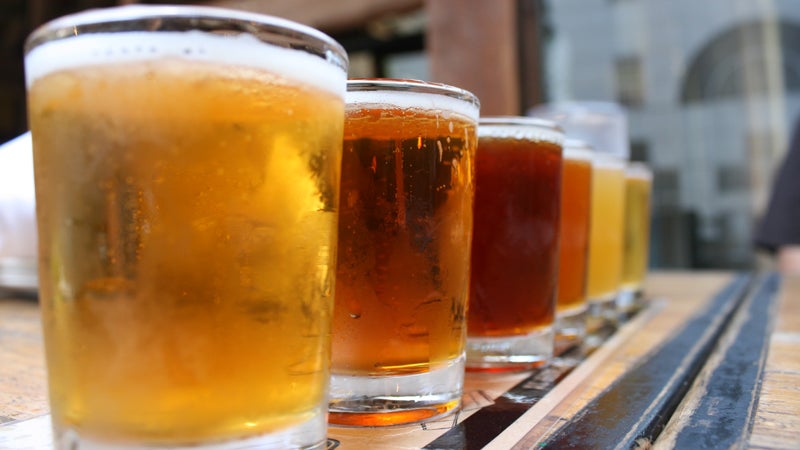On June 5, the Alcohol and Tobacco Tax and Trade Bureau published , which has simplified the approval process of new beers so they can make it onto shelves and into your hand faster.
The new ruling allows for more than 30 ingredients—including honey, certain fruits, and some spices—to be exempt from formula requirements that had previously kept new beers off the market for months as they awaited approval. Additionally, the process of aging beer in barrels is now acknowledged by the TTB as a “traditional” method, and products using newly approved methods or ingredients have new labeling requirements.
But the labels are where some big-dog brewing companies are facing trouble with consumers. The nation’s two biggest beer makers, Anheuser-Busch and Miller Coors, are now the subject of an online petition fronted by nutritional activist demanding that their beer ingredients be posted online.
Hari claims that additives such as high-fructose corn syrup, propylene glycol (an ingredient found in airplane antifreeze), and fish bladders are used either in beer or during the brewing process. “I just want full disclosure, not to change labels and go through government labels, just to disclose it online so everyone can see,” Hari said in an .
Because of TTB rulings such as 2014-4, beer, wine, and pure alcohol products are not required to list every ingredient. According to a Chicago Tribune , the government used to publish a list of permitted ingredients in beer. The list included food dyes, sweeteners, preservatives, foam enhancers, enzymes, and chill-proofing agents.
Brewers who are just looking to experiment with natural ingredients such as honey or coffee are excited about what the new labeling requirements can do for the craft of brewing. Simple recipe tweaks will no longer have to go through the entire approval process as long as the ingredients are on the approved TTB listings. “It’s great news in terms of streamlining for the brewer,” says Paul Gatza, director of the , in a report with . “It does give [brewers] greater freedom, and chances are beer drinkers will have more options of beers available to them.”
Even Hari agrees that beer deserves to be on shelves and in glasses, not held up by government regulations. In fact, beer is her husband’s favorite beverage. “I’m not asking for government involvement. I’m asking for voluntary disclosure on their websites,” she said in ������USA Today.


